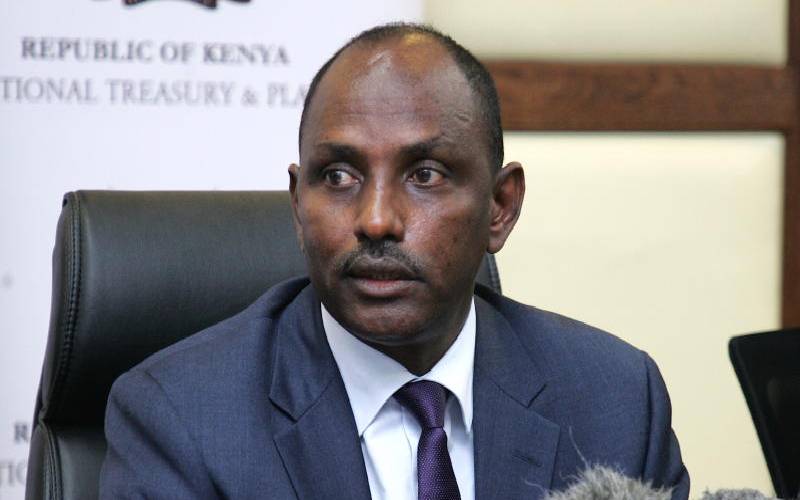×
The Standard e-Paper
Home To Bold Columnists

National Treasury CS Ukur Yatani in Nairobi on February 3, 2021. [Wilberforce Okwiri, Standard]
Kenyans will shoulder the extra Sh1 billion for the controversial Sh63 billion Medical Leasing Equipment Scheme if Parliament approves Treasury's variations of the cost by the Ministry of Health.